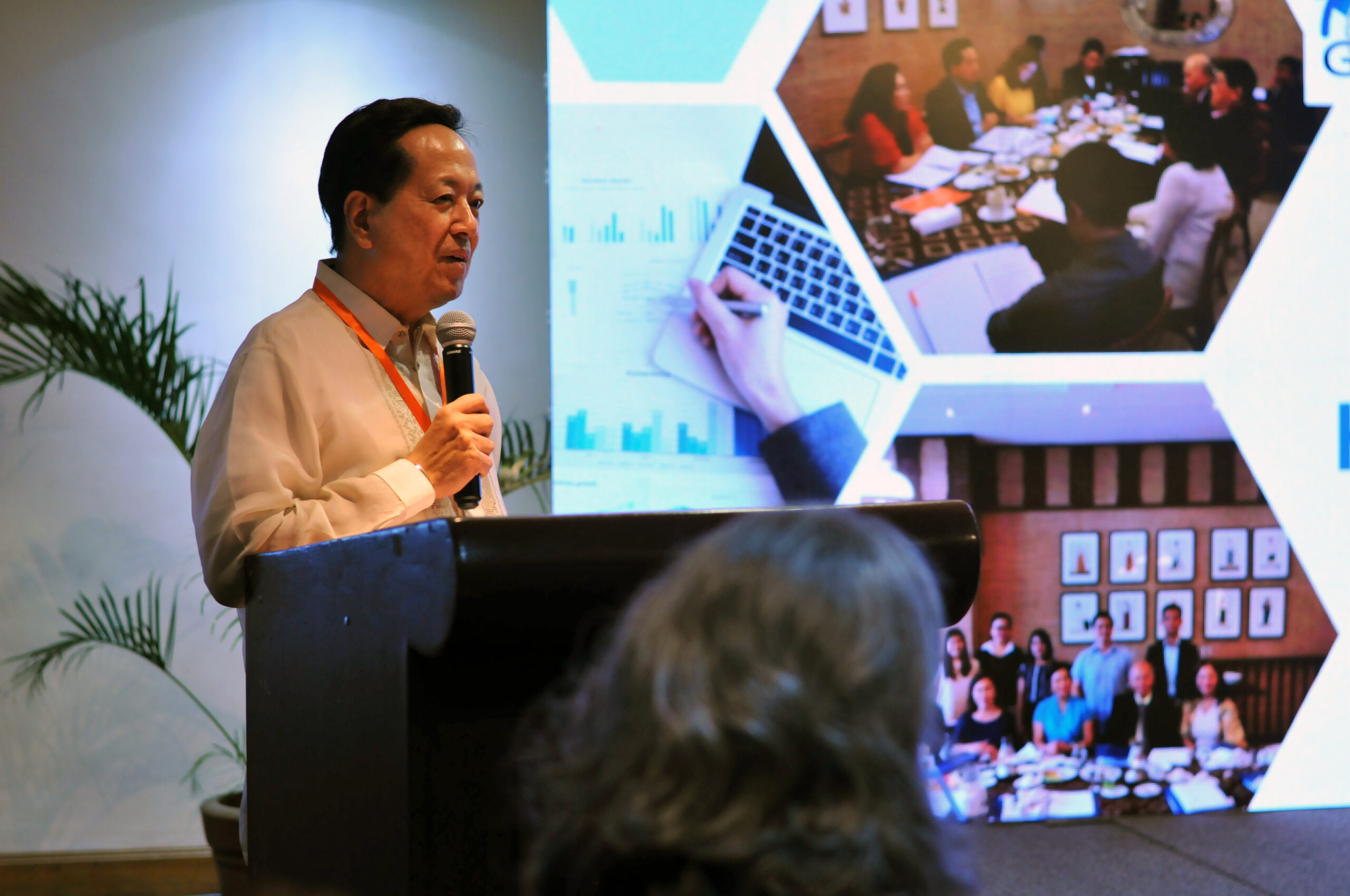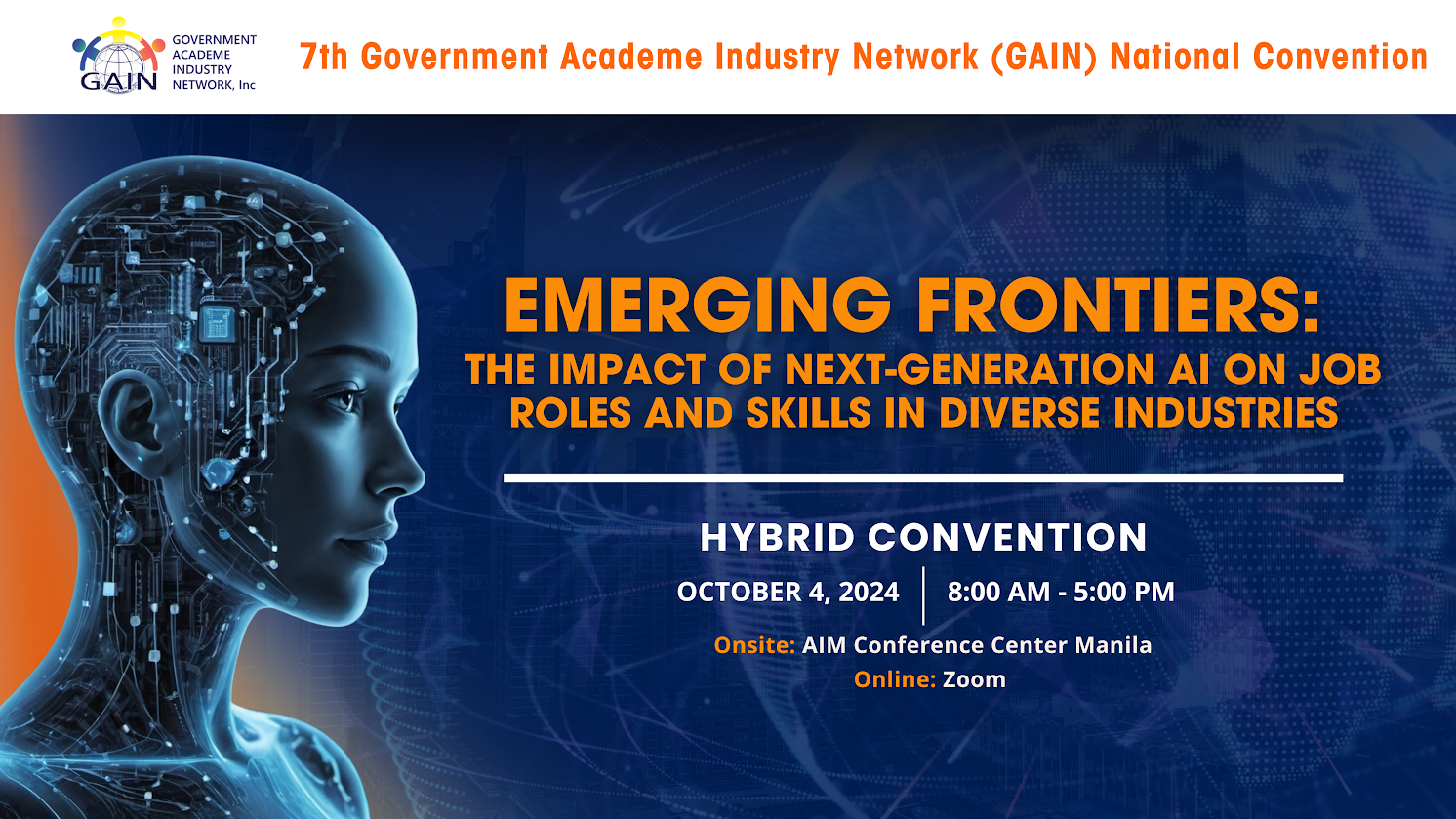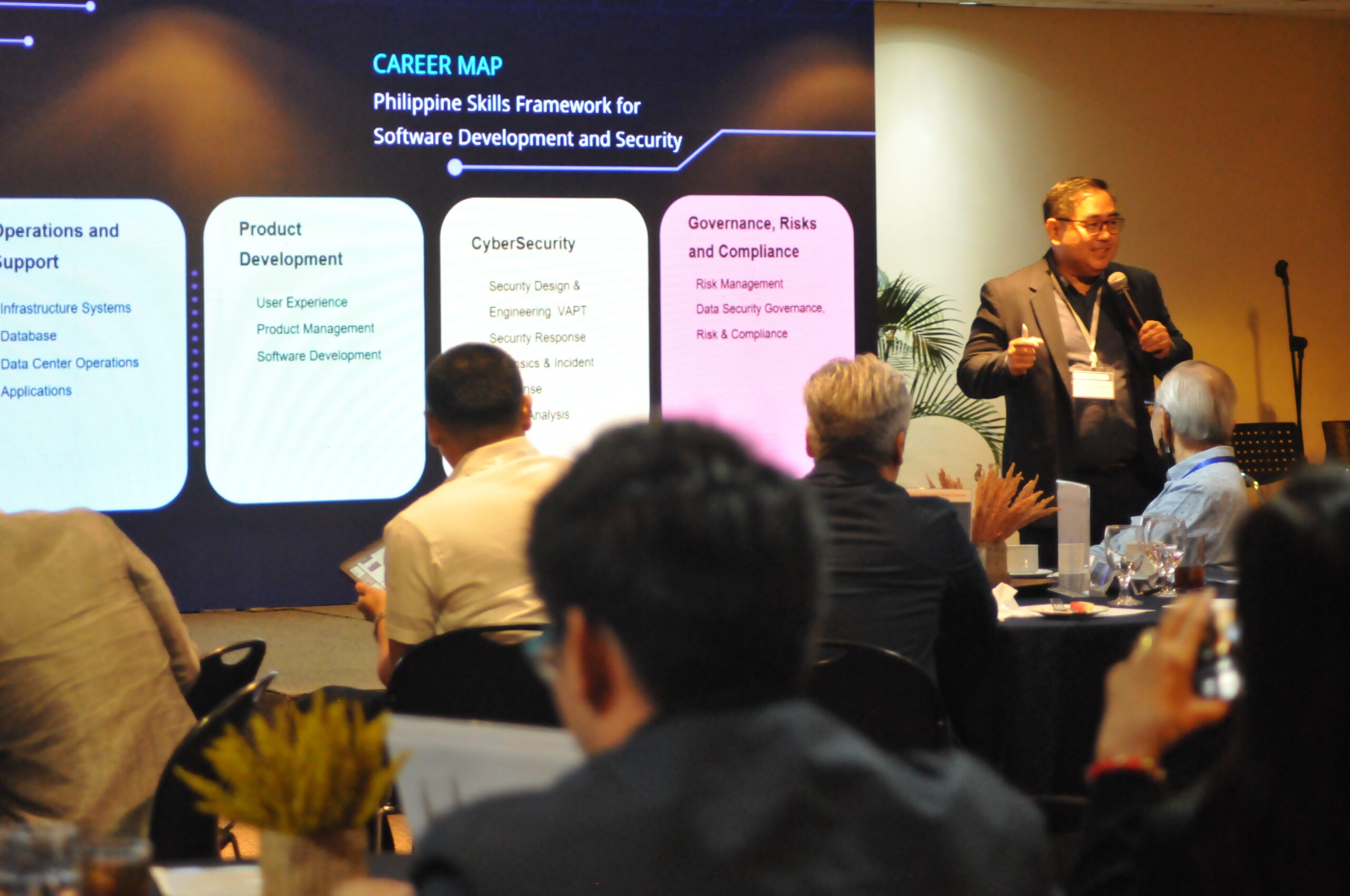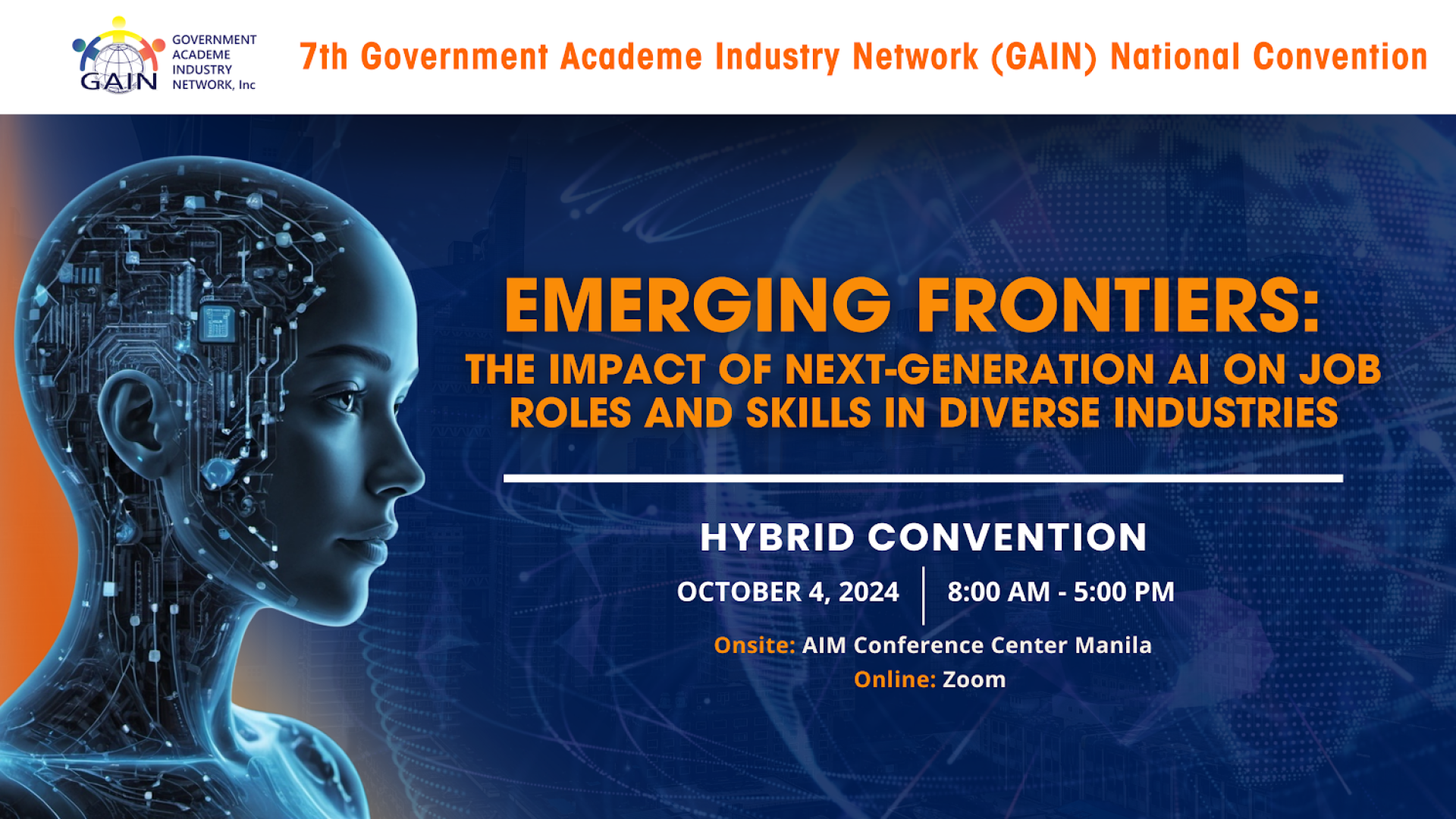Concrete collaboration among industry, academe, and government eyed
While the extent of the impact on various sectors due to artificial intelligence (AI) has yet to be determined, experts from the academe, representatives from several industries, and government officials emphasized the need for professionals to be well-versed with this emerging technology that will shape the jobs of the future.
Possible solutions and collaborative projects in bridging the gap between industry demand and the skills of graduates were explored during the 7th National Convention of the Government, Academe, and Industry Network (GAIN) in preparation for an AI-driven future.
“In gathering representatives from the academe, government, and industry, we can initiate conversations that will spark ideas and form plans for mutually beneficial collaborations on talent development and acquisition,” said GAIN President Monette Iturralde-Hamlin.
Upskilling and reskilling is a must
Kennon Harrison, Jr., Head of Corporate Workforce Partnerships at ETS, named skills as the new currency of future jobs and called for professionals to update their skills.
President Jack Madrid of the IT and Business Process Association of the Philippines (IBPAP)




IT and Business Process Association of the Philippines President Jack Madrid echoed Harrison’s call for updating skills and retraining, especially in the IT and business process management industry, where around 67 percent of companies have already integrated AI into their operations.
“Jury’s still out on the impact of AI, but it’s clearly here to stay. How it will impact the work we do is not yet clear, and so we must take on the responsibility to upskill and reskill,” Madrid said.
Frameworks to address skill gaps
Dr. Jhino Ilano, Director of the Department of Information and Communications Technology (DICT), emphasized the urgent need to bridge the gap between educational qualifications and workforce requirements, given that two out of five employees face a skills mismatch where their abilities do not align with the demands of their job roles.
To address this, the DICT, in collaboration with key industry associations, spearheaded the development of the Philippine Skills Frameworks for the Information Technology, Business Process Management, and Frontier Technologies. PSFs will serve as a structured guide, outlining the essential skills and competencies required for various roles within these industries.
Data privacy consultant Dr. Rolando Lansigan and Dr. Christian Alis, Academic Program Director for Master of Science in Data Science at the Asian Institute of Management, also pushed to strengthen the curriculum in basic and higher education in training Filipino students in emerging technologies like AI.
GAIN has already engaged in several programs and efforts toward training globally competitive Filipino talents. Notable are the GAIN SGEN Reading Program, a technology-based solution for challenged readers requiring no internet connection, and the English for Tagalog Speakers course on the language learning platform Duolingo.
GAIN Chairman Dr. Peter Laurel added, “Our focus has always been on helping Filipino graduates and our workforce meet international standards. Today, we are happy to be joined by industry players actively participating and supporting our goal of empowering Filipinos to be globally competitive.”




